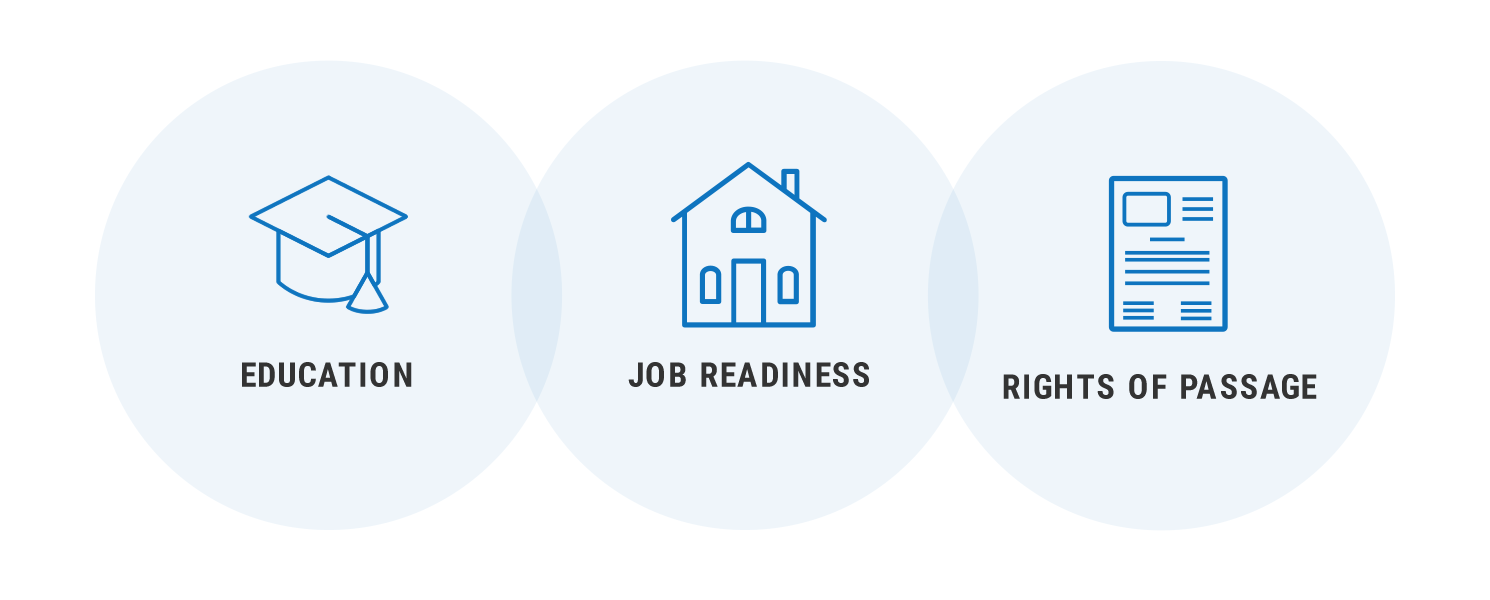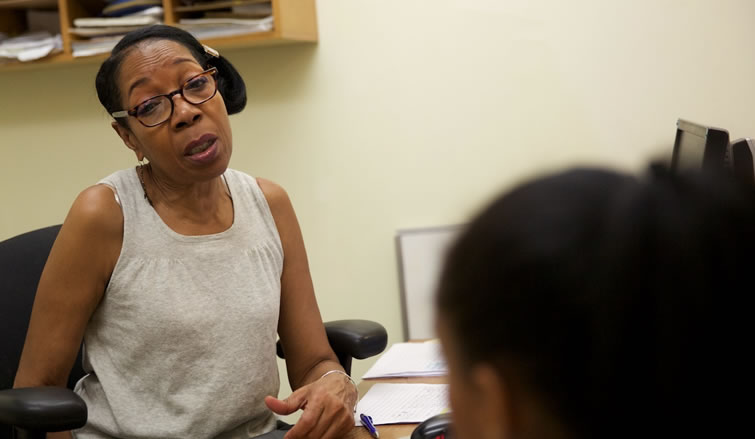
The steps toward self-sufficiency
Our goal is for youth to walk out of Covenant House's doors more secure than when they walked in, and also to provide them with opportunities to improve their situation. Through our long-term model of care, we strive to build a foundation for kids as they move toward independent adulthood – free from the risk of future homelessness.
To achieve this, we provide extended support beyond Crisis Care, including job readiness, education services and transitional housing programs for our young people.

Continuing education and job readiness programs
Upon intake, teens are provided job readiness and education assessments to determine their specific needs and dreams for the future – and how we can best help them achieve those dreams.

Our continuing education services include:
- Guidance, structure and support to help kids move forward with their education
- Tutoring, remedial education groups and flexible, on-site GED preparation classes
- College preparation for youth who want to attend higher education
Our job readiness programs include:
- Vocational training
- Interview clothes
- Resume help and mock interviews to coach them on how to land a job
- Job placement assistance
And at every step, our staff and counselors are there for our kids – whether that means a pre-interview pep talk, help with schoolwork or simply listening and offering advice.
Transitional housing: Our Rights of Passage program
Created in 1986, Rights of Passage (ROP) is an innovative transitional living program that addresses the long-term needs of at-risk, runaway and homeless kids who first come to us.
Once accepted into ROP from our Crisis Care program, residents live in semi-independence for up to 18 months.
Through Rights of Passage, our kids:
- Learn to do their own shopping, cooking and cleaning.
- Are required to complete their education and hold down a job.
- Gain financial skills; a portion of ROP residents' salaries go into a savings account and is returned at the end of their stay to assist them in acquiring their own place
- Have ongoing access to counseling services as well as educational and vocational programs throughout their residency
- Have counselors offering assistance along the way to ensure our young people fulfill their responsibilities and have support no matter what